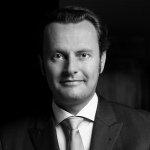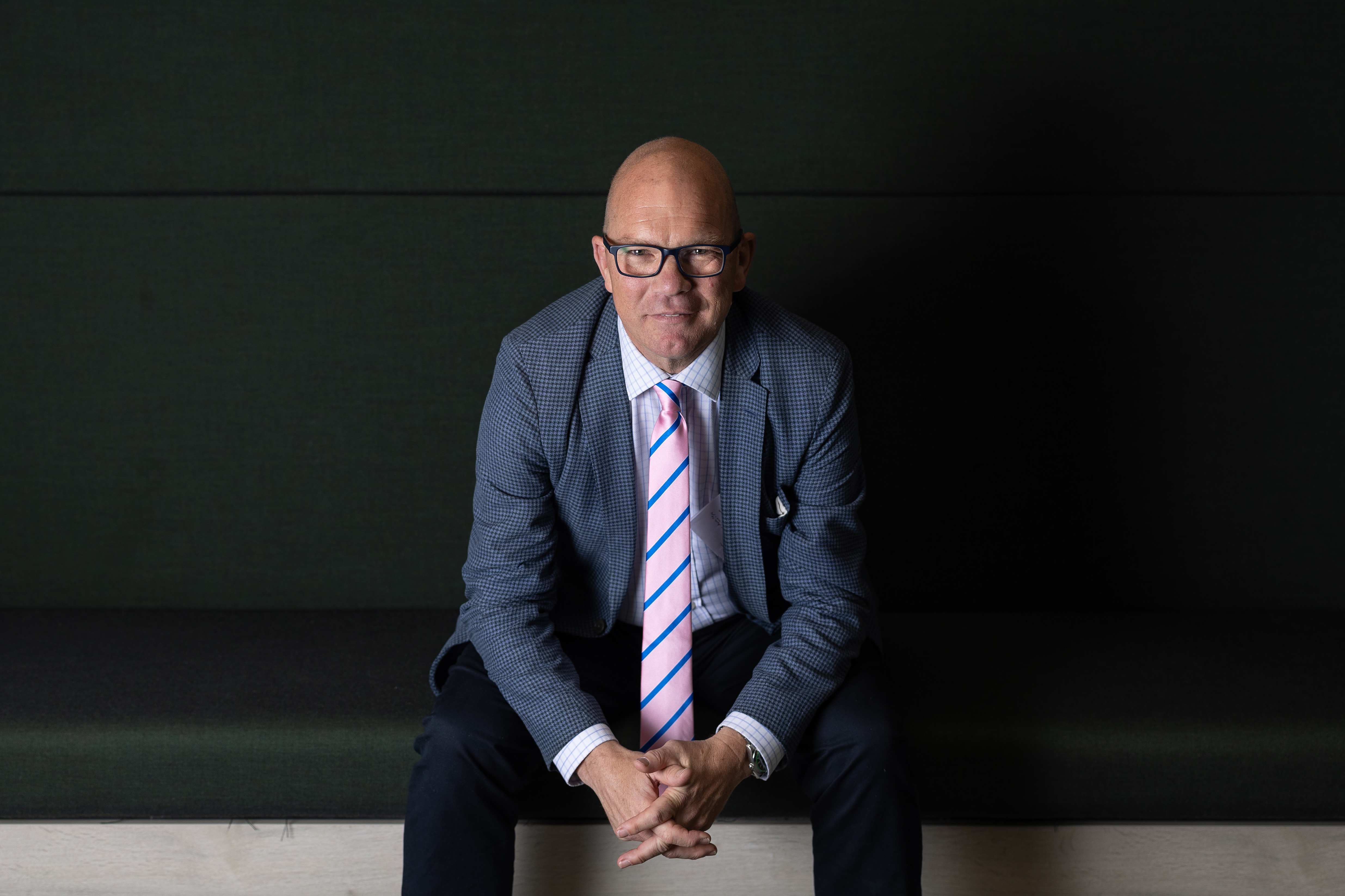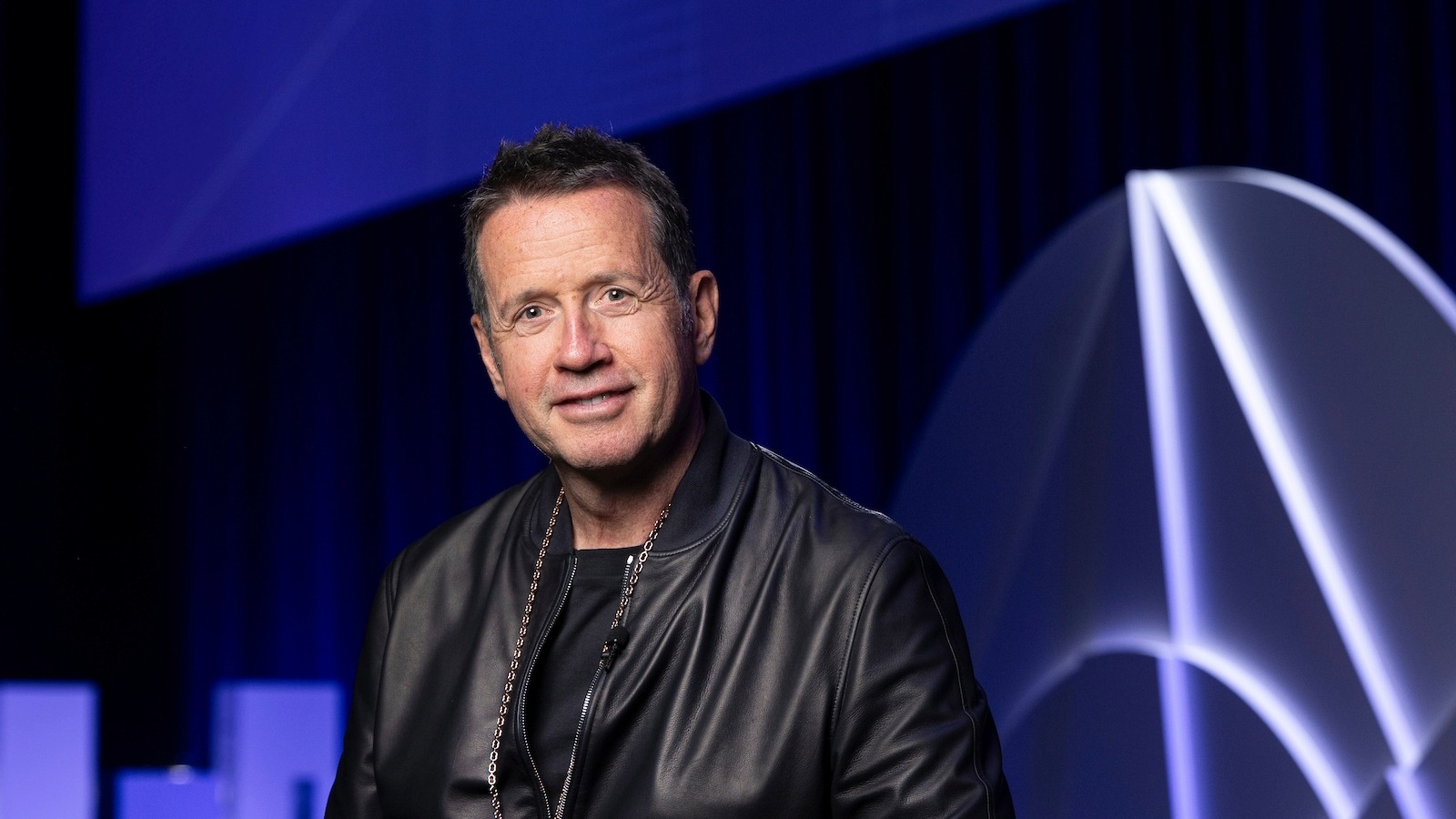Pierre-Yves Poulain sits down with Thomas Lindemann to find out how the Swiss conglomerate’s Group Human Resources Director defines success in an increasingly complex HR environment

Pierre-Yves Poulain sits down with Thomas Lindemann to find out how the Swiss conglomerate’s Group Human Resources Director defines success in an increasingly complex HR environment
Pierre-Yves Poulain sits down with Thomas Lindemann to find out how the Swiss conglomerate’s Group Human Resources Director defines success in an increasingly complex HR environment
Finding the right kind of creative people to work in product development must be a lynchpin for luxury brands like those in Richemont’s portfolio. How do you go about assessing them in today’s tricky climate?
Many of our brands are more than 100 years old, so we re-invent to protect our heritage rather than creating totally new things. That’s why it’s important to have patient and passionate people who are able to accept that they have to be close to the DNA and the history of the brand — and from that history to develop the future. We need people who have accepted to put aside their own interests in order to make a brand stronger. Not changing things radically, but having an evolution process in place. When you develop a radically new watch, for example, something unexpected, it’s great because you see immediately whether it’s a success or not. But to continue working on an existing product and keep it desirable, that is a real art. You have to be a believer.
What about tailoring your recruitment strategy to other positions where the skill set is becoming more fluid — like in communication, sales and marketing?
Customers are even more sophisticated now and, because of the internet, people know more about our company. So for communication roles it’s crucial to be able to simplify the complexity or sophistication in order to get to the point — but never forgetting that a brand needs substance. That’s why when the complexity level is high, as they are in the decision-making process for luxury purchases, you have to be able to come to a point where you enable people to discover the sophistication behind the elegant simplicity of the offering.
This is where the one-to-one sales force really comes to life, in a way that the internet cannot. Retailing is the consumer interface and every single sales person is the ambassador of their maison — representing the “world of” the maison. He or she creates the consumer’s perception which becomes the truth for each customer at that point in the process. I think it is now less about waiting in the boutique until the customer enters, but instead looking for alternatives where our customers are open to listen to our brand message. This entrepreneurial spirit is becoming very important again. Unfortunately, retailing is not always perceived as a very prestigious job in our industry. Everybody wants to work on strategy, products, etc. But we need a real shift here. At the end of the day, retail is key and is where we are either successful or not.
To what extent has the 2009 ‘crisis’ itself impacted your HR plans, direction and strategies? *
We started quite early with a recruitment restriction — two years ago at Richemont. From then on, we focused on quality and effectiveness. And by doing this, we did a great job in sharpening the entrepreneurial spirit of our colleagues by giving them challenges they may not necessarily have had. We have also focused on internal promotions, giving us the opportunity to shift the focus from a skills-only based approach to one that also factors in more about personality. Has someone got the right attitude? The right ambition? The ability to learn and the willingness to change? If so, then we can be quite confident that even if a candidate lacked a certain technical skill, they can adapt — rather than a situation where a candidate is 100% skilled but might not fit in terms of personality.
What are your top post-crisis HR priorities?
You know, these things come in waves. Three years ago it was almost impossible to recruit people for an SAP project for in-house implementation. No one would have responded to such an advertisement — or even seen it in the newspapers for that matter. Another time, you’re short on engineers. Between five and seven years ago, people were motivated to leave universities for a work contract before even completing their studies. Employers were offering good financial packages and the prospect of a more concrete experience in a company.
Today, we are seeking out people with a predisposed creative mindset and a natural ability for innovation. Given that we are asking people for a long-term commitment, it is just as important that the company actively promotes and enhances the innovation process. It is from this basis that success stories are born, whether developing great managers or bringing beautiful products to the market.
What makes doing HR at Richemont a different proposition?
For us what is most important is the fit into our culture. We take the necessary time to make decisions and think long-term. Some recruitments will take us over a year just to make sure there is the right fit.
“ For us what is most important is the fit into our culture ”
Considering how many candidates we get from a job advertisement, the real challenge is to not skip over the best ones just because you are sticking to a pre-set selection criteria, and to filter them in a smart way to the group you want to have for an interview. When it comes down to a shortlist of two to three candidates, you have to resist to the temptation to believe that the one you would select is definitely the best candidate available on the market at that time. Sometimes, it is better waiting for a longer period of time, for the right fit. Recruitment is a key success factor in the luxury industry.
What is Richemont’s ethos for effective succession planning? *
It’s important for us to have the right managers on board and to train the managers to teach their teams so that they can become the managers of the future. Good managers will always recruit good people. And when they recruit, they should ask themselves what they can learn from the people they recruit. This is the best way to ensure a good fit and to develop oneself. When you think about topics like talent and potential, it all comes down to the same thing. Our criteria for talent is based on learning ability. How do you react to changes, differences and ambiguity? By learning to overcome these elements. You have to consider that most of the jobs will change significantly in scope over a four to five year period.
Are you moving many key executives to booming regions and markets?
We are growing significantly in Asia and are, indeed, moving people there. You can either send very experienced people from HQ who have limited local skills or you can recruit people locally, knowing they may not have your brand culture or enough significant experiences in the luxury industry. But it is recruiting new people who are not locals and who do not yet know our industry which does not make sense.
When we do send expats, these are for projects which usually have a beginning and an end of, say, three to five years. After completing their mission, they come back to recharge their batteries and their brand knowledge.
More importantly, it is a matter of maintaining a balance between expats and locals. It is not just because you speak Chinese that you can be understood everywhere in China. Understanding the local culture and behaviours is much more difficult. We also have people coming from Asia to our headquarters in Europe to teach us about Asian culture.
How is Richemont coping with the recruitment of talent specialised in digital communication and commerce? Is it difficult to integrate new digital positions into the existing corporate structure?
The luxury goods industry is unique in that integrating new media into the luxury experience is not as easy as with some other industries. We have a duty to our customers to deliver the equivalent of a luxury experience and excellent service to our customers, whether it is offline or through new media.
As a result, with the support of our new talent in this field, our maisons are striving to find the best way of serving and reaching out to our customers through digital media, and the maisons are committed to continuously evolving within it. We are successfully seeing our way through this integration of new talents. As with many things, change, if done properly, can be a very positive thing.
Do you have any programmes in place to recruit ethnic minority or women executives? Are they well represented in Richemont?
From the beginning, Richemont
has always lived with a natural diversity. More than 109 nationalities are present here, 56% of our employees are women, 34% of our management are women.
“ There are some tools, like effectiveness and project management, that in the end, you learn best from a good boss ”
Are you investing in early recruitment strategies to attract specialist talent from universities or business schools with luxury programmes? Or developing ‘co-branded’ projects and curriculums with educational institutions?
When it comes to our relations with the education universe, we do have more and more contact with some MBA programs. These are more like long-term ‘partnerships’ with schools rather than sponsoring certain events or degrees. We are just looking for those talents who represent a true potential for our specific brands — wherever they come from.
Besides, have you ever really thought about the question: “How do you become a good manager”? It doesn’t come through the university or an MBA. It comes through your boss. After many years, if I asked you where you learned the most, I’m quite sure you could immediately give me an answer: “Oh, that was this guy — a demanding one — but I learned a lot”. There are some tools, like effectiveness and project management, that in the end, you learn best from a good boss.
How will Richemont’s corporate social responsibility strategy and record factor into recruitment in the future? How is the outsourcing of manufacturing or backend services to more cost effective territories impacting your HR strategies?
We recognize that in the luxury industry we are fortunate enough to live in a privileged environment, one where there is added value beyond the products. When it comes to the product itself, we are and will continue to be quality driven. So whilst this is really a business-driven decision it means that we will not delocalize our production from Europe. We constantly keep in mind to never jeopardize our key business — top quality products with added value — by adopting an arguably ‘cost-effective’ delocalization approach.










